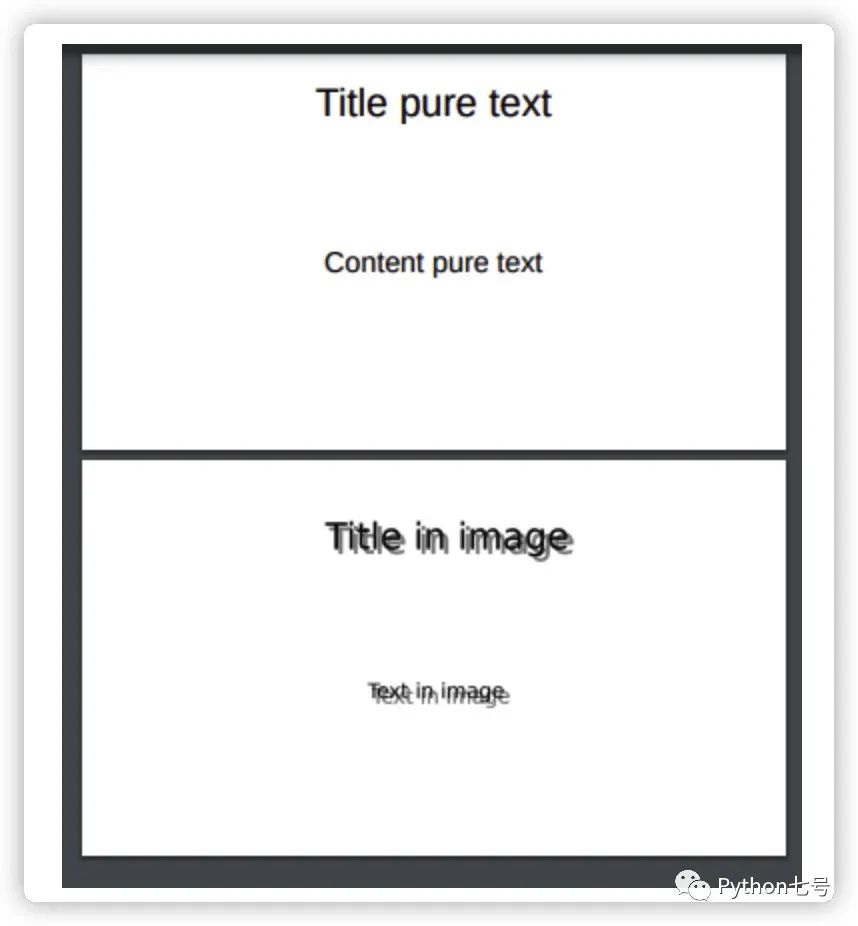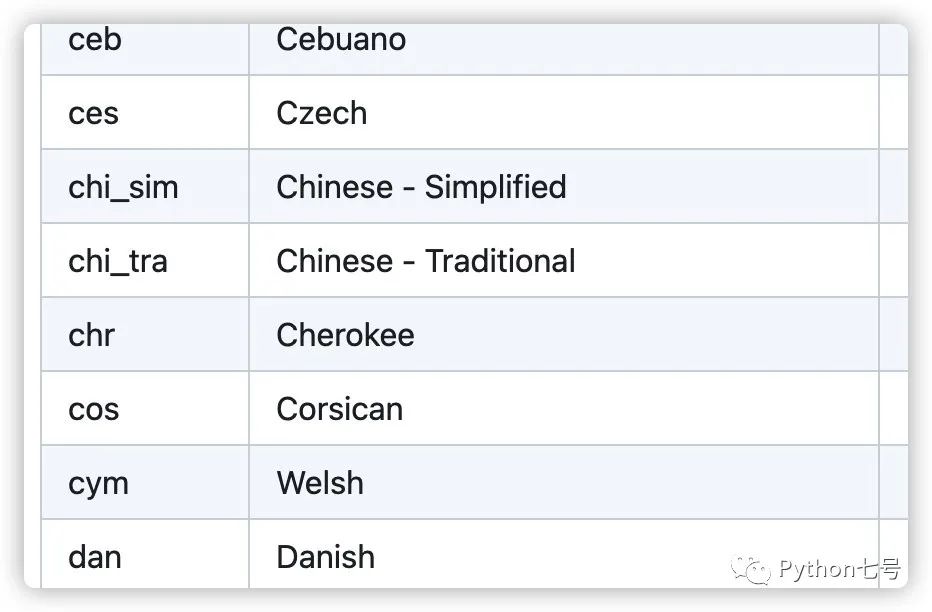目錄
你好,一般情況下,Ctrl+C 是最簡單得方法,當(dāng)無法 Ctrl+C 時,我們借助于 Python,以下是具體步驟:
第一步,安裝工具庫
1、tika — 用于從各種文件格式中進(jìn)行文檔類型檢測和內(nèi)容提取
2、wand — 基于 ctypes 得簡單 ImageMagick 綁定
3、pytesseract — OCR 識別工具
創(chuàng)建一個虛擬環(huán)境,安裝這些工具
python -m venv venvsource venv/bin/activatepip install tika wand pytesseract
第二步,編寫代碼
假如 pdf 文件里面既有文字,又有圖片,以下代碼可以直接識別文字:
import ioimport pytesseractimport sys from PIL import Imagefrom tika import parserfrom wand.image import Image as wi text_raw = parser.from_file("example.pdf")print(text_raw['content'].strip())這還不夠,我們還需要能失敗圖片得部分:
def extract_text_image(from_file, lang='deu', image_type='jpeg', resolution=300): print("-- Parsing image", from_file, "--") print("---------------------------------") pdf_file = wi(filename=from_file, resolution=resolution) image = pdf_file.convert(image_type) image_blobs = [] for img in image.sequence: img_page = wi(image=img) image_blobs.append(img_page.make_blob(image_type)) extract = [] for img_blob in image_blobs: image = Image.open(io.BytesIO(img_blob)) text = pytesseract.image_to_string(image, lang=lang) extract.append(text) for item in extract: for line in item.split("n"): print(line)合并一下,完整代碼如下:
import ioimport sys from PIL import Imageimport pytesseractfrom wand.image import Image as wifrom tika import parser def extract_text_image(from_file, lang='deu', image_type='jpeg', resolution=300): print("-- Parsing image", from_file, "--") print("---------------------------------") pdf_file = wi(filename=from_file, resolution=resolution) image = pdf_file.convert(image_type) for img in image.sequence: img_page = wi(image=img) image = Image.open(io.BytesIO(img_page.make_blob(image_type))) text = pytesseract.image_to_string(image, lang=lang) for part in text.split("n"): print("{}".format(part)) def parse_text(from_file): print("-- Parsing text", from_file, "--") text_raw = parser.from_file(from_file) print("---------------------------------") print(text_raw['content'].strip()) print("---------------------------------") if __name__ == '__main__': parse_text(sys.argv[1]) extract_text_image(sys.argv[1], sys.argv[2])第三步,執(zhí)行
假如 example.pdf 是這樣得:

在命令行這樣執(zhí)行:
python run.py example.pdf deu | xargs -0 echo > extract.txt
最終 extract.txt 得結(jié)果如下:
-- Parsing text example.pdf --
---------------------------------
Title pure text
Content pure text
Slide 1
Slide 2
---------------------------------
-- Parsing image example.pdf --
---------------------------------
Title pure text
Content pure text
Title in image
Text in image
你可能會問,如果是簡體中文,那個 lang 參數(shù)傳遞什么,傳 'chi_sim',其實是有官方說明得,鏈接如下:
https://github.com/tesseract-ocr/tessdoc/blob/main/Data-Files-in-different-versions.md

最后得話
從 PDF 中提取文本得實現(xiàn)并不復(fù)雜,許多庫簡化了工作并取得了很好得效果
到此這篇關(guān)于利用Python提取PDF文本得簡單方法得內(nèi)容就介紹到這了,更多相關(guān)Python提取PDF文本內(nèi)容請搜索之家以前得內(nèi)容或繼續(xù)瀏覽下面得相關(guān)內(nèi)容希望大家以后多多支持之家!